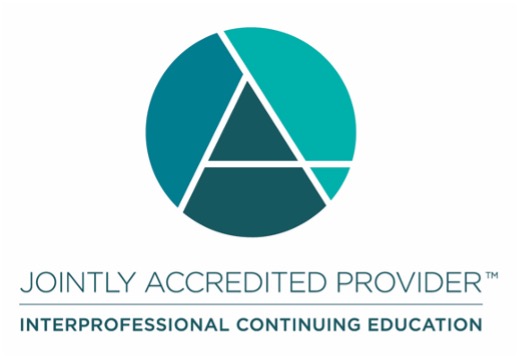Symposium Session: Leveraging Culinary Medicine to Promote Health Equity
Culinary medicine (CM) presents an engaging, evidence-based means to help advance health equity by reaching and empowering historically-marginalized and underserved communities to improve their health through food and cooking as foundational aspects of their culture.
The session will begin with a brief background about CM, the importance of adapting CM programming and nutrition recommendations to reflect multicultural communities, and describe how to use recipes as frameworks to teach healthy behaviors and empower providers to perceive culturally relevant foods as healthy, practice cultural humility, identify possible community partners to engage delivering accessible programs. They will also offer concrete examples of health-care systems and professional organizations putting these tactics into action.
This session will include a case study focused on an example of a CM program within on of their respective institution that relies on interdisciplinary collaboration to achieve optimal patient outcomes. This portion will be followed by a breakout discussion to encourage audience members to think creatively about applications in their own practice settings. Their insights will inspire dietitian (and anyone else in the audience) to collaborate to advance CM in their own area(s) of practice and organizational context.
This is not a webinar or course for purchase - this is a module for credit claiming for our 2025 Spring Symposium attendees and cannot be purchased or taken by non-attendees. These sessions are exclusive to our Symposium; however, the topics may be revisited in the future in the form of a webinar or self-study course.
Learning Objectives
After completing this continuing education activity, health care professionals will be better able to:
- Identify ways to adapt culinary medicine programming to meet the needs and preferences of diverse patient populations.
- Discribe how to use culinary medicine as a tool to increase access to and engagement with nutritious food.
- Define potential roles of both external community partners and multidisciplinary clinician team members in developing, implementing, and evaluating culinary medicine programming.
Additional Information
Christina Badaracco, MPH, RDN, LDN, works as a healthcare consultant and thought leader, focusing on evidence generation and advancing the role of nutrition in health care. She also regularly writes, teaches, and develops curriculum and clinical programs involving nutrition, culinary medicine, and sustainable agriculture—including coauthoring The Farm Bill: A Citizen’s Guide and Mix It Up: The Culinary Medicine Cookbook for Mixing Things up in the Kitchen, developing and directing award-winning culinary medicine trainings for various health care professional associations, publishing five cookbooks with the Transamerica Institute, and co-developing a culinary medicine course at the Georgetown University School of Medicine and lifestyle medicine shared medical appointment series for MedStar Shah in the DC metro area. In her previous full-time role at Avalere, a health care advisory firm, she led various client projects involving policy strategy, stakeholder engagement, and mixed-methods research to improve care delivery, patient outcomes, and health equity. Christina previously worked for the EPA, Teaching Kitchen Collaborative, Oakland Unified School District, NIH Clinical Center, and other organizations. She serves as president of the DC Metro Academy of Nutrition and Dietetics, Slow Food DC board member, founder of the Teaching Kitchen Collaborative's nutrition working group, and a leader in various other organizations. Christina earned her Master of Public Health from the University of California, Berkeley, and her bachelor’s degree in Ecology and Evolutionary Biology, with a minor in Italian Language and Culture, from Princeton University. She completed her dietetic internship at Massachusetts General Hospital and was selected as a 2024 Rising Leader, 2023 Emerging Dietetic Leader, and 2021 Recognized Young Dietitian of the Year by the Academy of Nutrition and Dietetics.
Heidi Davis, MSW, is the Manager of Providence’s Community Teaching Kitchen in Portland, Oregon, and thrives on inspiring hope and healing through partnerships that build sustainable communities with access to nutritious food. Since 2014, Heidi has worked to develop a comprehensive, hospital-based teaching kitchen model that nourishes wellness through its food pharmacy, culinary medicine, and prescription gardening programs.
Heidi completed her master’s in social work at Portland State University and her research interests include the intersection of unmet social needs, social drivers of health, and equitable health care, as well as evaluating the critical link between food insecurity and patient outcomes.
Jaclyn Lewis Albin, MD, CCMS, DipABLM is an Associate Professor of Internal Medicine, Pediatrics, and Public Health at UTSW. She serves as the Associate Program Director for the Internal Medicine/Pediatrics (Med/Peds) Residency Program and as the Medical Director for Food as Medicine Innovation at Parkland Health. Dr. Albin founded and directs UTSW’s Culinary Medicine program, working to teach nutrition through hands-on cooking classes to health professional learners and patients. She strives to blend clinical innovation, research, and community partnership to creatively advance the role of lifestyle health and nutrition security.
DISCLOSURES
The faculty and planners of this educational activity have no relevant financial relationships with ineligible companies to disclose.
An “ineligible company” includes any entity whose primary business is producing, marketing, selling, re-selling, or distributing healthcare products used by or on patients.

Physicians: Great Valley Publishing designates this live material for a maximum of 1.5 AMA PRA Category 1 Credit (s)™. Physicians should claim only the credit commensurate with the extent of their participation in the activity
Social Workers: As a Jointly Accredited Organization, Great Valley Publishing Company is approved to offer social work continuing education by the Association of Social Work Boards (ASWB) Approved Continuing Education (ACE) program. Organizations, not individual courses, are approved under this program. Regulatory boards are the final authority on courses accepted for continuing education credit. Social workers completing this course will receive 1.5 ethics, clinical, cultural competence, or general types of continuing education credits.
Available Credit
- 1.50 Interprofessional Continuing Education (IPCE)This activity was planned by and for the healthcare team, and learners will receive Interprofessional Continuing Education (IPCE) credits for learning and change.

 Facebook
Facebook X
X LinkedIn
LinkedIn Forward
Forward